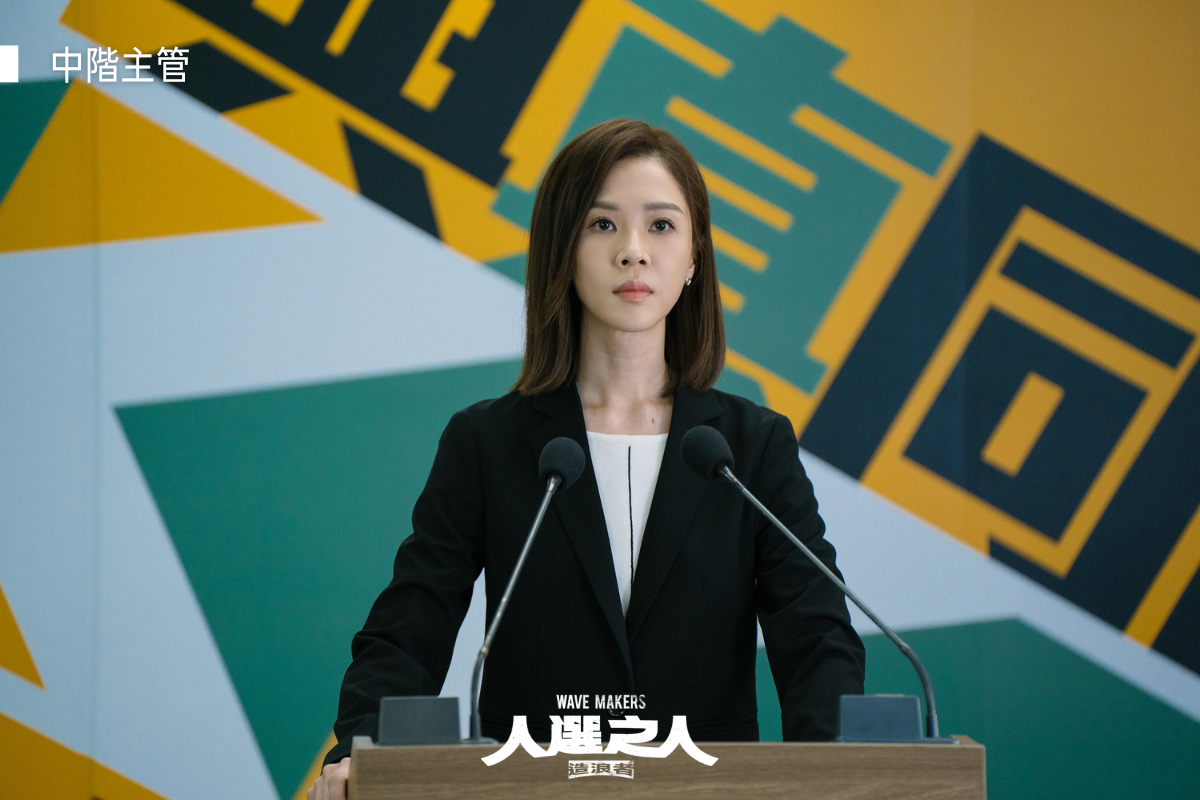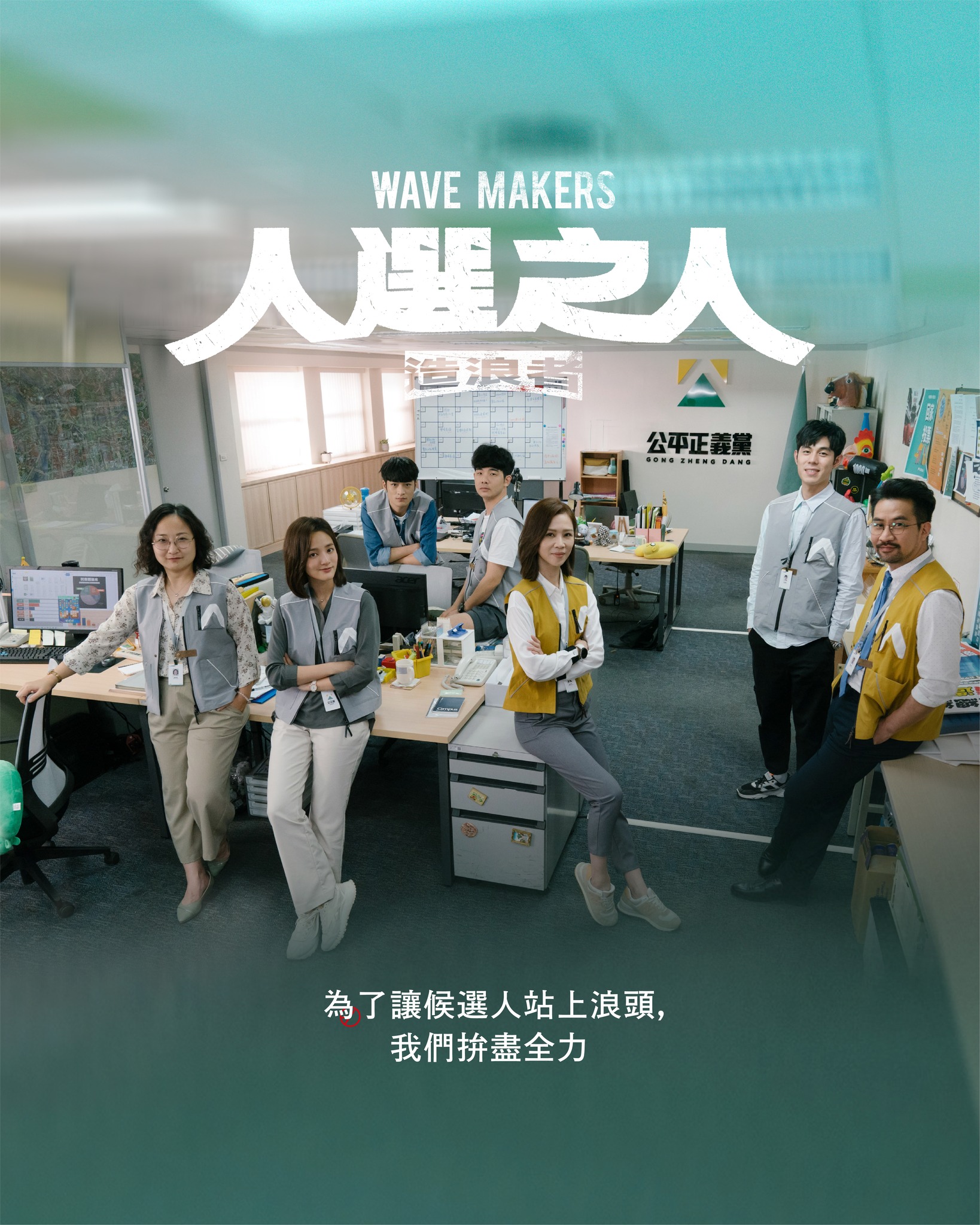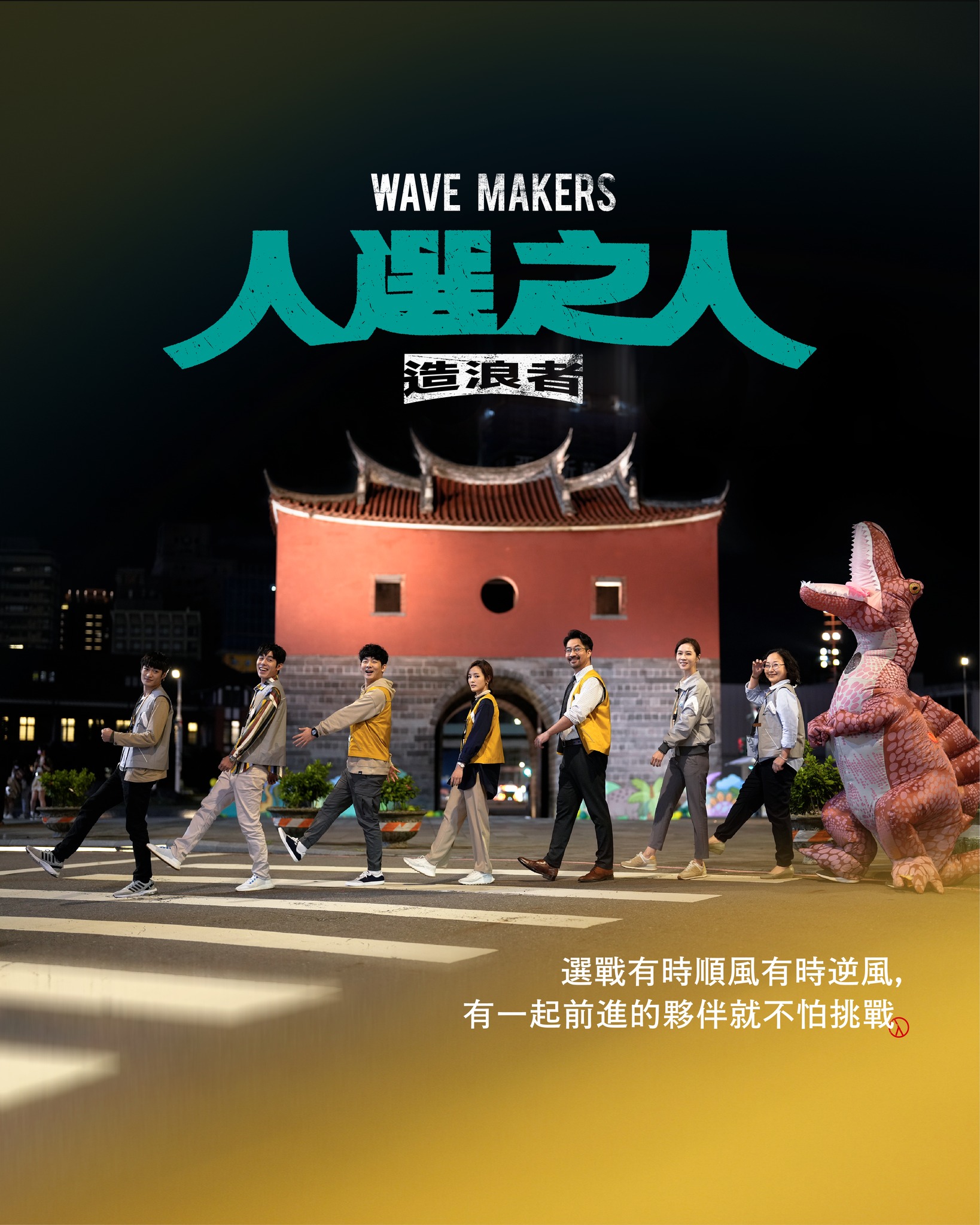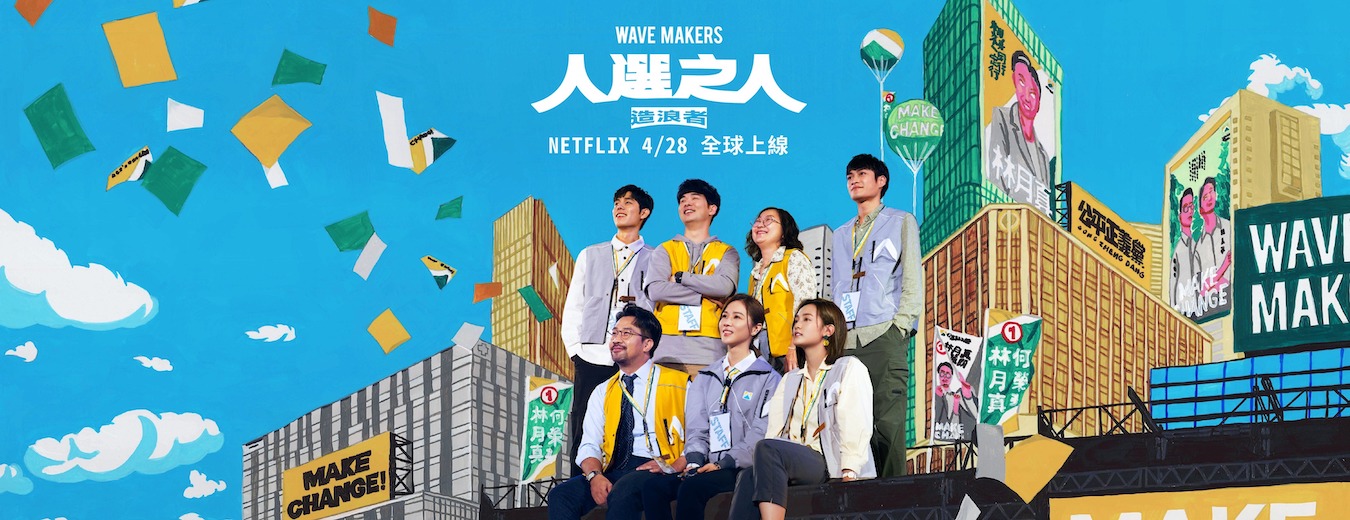by Brian Hioe
語言:
English
Photo Credit: Wave Makers/Facebook
WAVE MAKERS, currently available on Netflix, continues the trend of hit television series often drawing from Taiwan’s recent history in subject matter. Wave Makers, however, focuses on the grassroots-level political workers that work in contemporary campaigns. This is to be contrasted to Island Nation’s depiction of the Lee Teng-hui presidency, for example, but aligns the show closer alongside Days of the Sun II, which is set during the Sunflower Movement.
Wave Makers follows former New Taipei city councilor Weng Wen-fang, who since an election defeat has been working as the deputy director of the Justice Party’s press department. Weng contends with the pressures of the campaign, managing her team with a presidential election to take place in a year, while also still dealing with the shock of her election loss. Namely, Weng, the daughter of a DPP politician, became embroiled in controversy after a video clip that seemed to show her getting into a fight with a supporter.

Photo credit: Wave Makers/Facebook
The Justice Party appears to more or less be a politically progressive DPP stand-in, especially seeing as the party speaks a great deal of Taiwanese Hokkien internally, which is up against the conservative KMT-like Democracy and Peace Party. Not all details are drawn from real-life, though. For example, despite being set in the 2020s, the Democracy and Peace Party is the incumbent and controls the presidency and legislature, despite that both parties are chaired by women and Taiwan has a female president under the Democracy and Peace Party. At one point, the Sunflower Movement is referenced in passing, but is referred to as the “Dandelion Movement.” The willingness of the show to take liberties with history, rather than simply make the setting into a cipher for reality is probably to the show’s benefit.
Significantly, China does not come up during the series. The desire to avoid mention of China is probably a creative choice, to allow the vibrant life of Taiwanese politics to speak on its own, without reference to China, and this is probably the right choice.
Wave Makers takes a ground-level approach to its depiction on political campaigning, managing to combine both moments of high drama with moments of frivolity. After all, the campaign issues up for vote during each election are significant and will affect Taiwan’s future.
But on a day-to-day basis, this takes the form of political camps battling each other through publicity campaigns, or responding to attacks from the other side. Publicity can range from the serious, such as criticizing discriminatory statements by the Justice Party, or to the light, such as arranging sponsored appearances with popular young influencers. Likewise, much political work involves trying to keep stakeholders happy, whether that be voters, influential local figures, or even design firms commissioned to work on campaigns.

Photo credit: Wave Makers/Facebook
One of the most successful aspects of Wave Makers is its ability to depict how politics comes to comprise a culture in and of itself in Taiwan. A telling moment is when the cast goes to karaoke and becomes nostalgic over old campaign songs that they remember from their childhoods.
Wave Makers is successful because it focuses on its characters first, depicting them in a humorous and sympathetic light. This proves to be a much more successful approach than Island Nation, whose characters are largely lifeless because the plot comes first. Instead, the plot gradually unfolds to flesh out the characters. As it turns out, for example, as quickly revealed in the second episode, Weng’s controversy occurred due to an incident in which a politically influential figure saw her with her girlfriend, and reacted in a homophobic manner.
In this way, Wave Makers manages to mix social commentary with its plot without being heavy-handed. Weng’s backstory, then, serves to touch upon the real-world issue of deep-rooted homophobia within the pan-Green camp–something that became a political issue in the lead-up to 2018 nine-in-one elections. In the course of the incident, Weng was told by her legislator father to apologize for the incident, but refused to do so.
Moreover, as of episode three, the show seems set to tackle the issue of sexual harassment, not only within political parties, but in terms of scandals affecting major political figures. Indeed, a broader underlying theme of the show seems to be how politicians have to navigate their own values versus what wins them support, not only in terms of their personal lives, but within political parties. So far, this has been handled excellently. Likewise, the series has quickly demonstrated that one of its main themes is the role of gender in politics, and for this it is to be praised.

Photo credit: Wave Makers/Facebook
Part of the realism of Wave Makers seems to be by drawing the experience of its scriptwriters on actual campaigns. To this extent, it may not be surprising that the script has been widely praised by young politicians and political workers. In this way, Wave Makers perhaps goes to depict the experiences of a generation that entered electoral politics after the 2014 Sunflower Movement, even when this involved trying to transform the idealism of the movement into concrete political outcomes.



